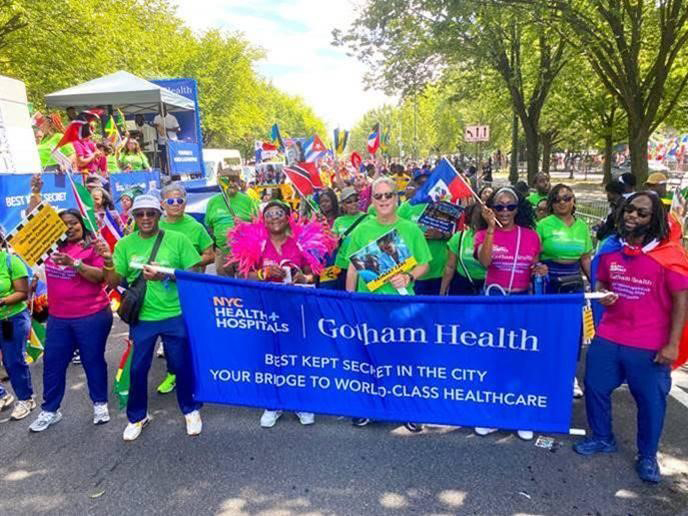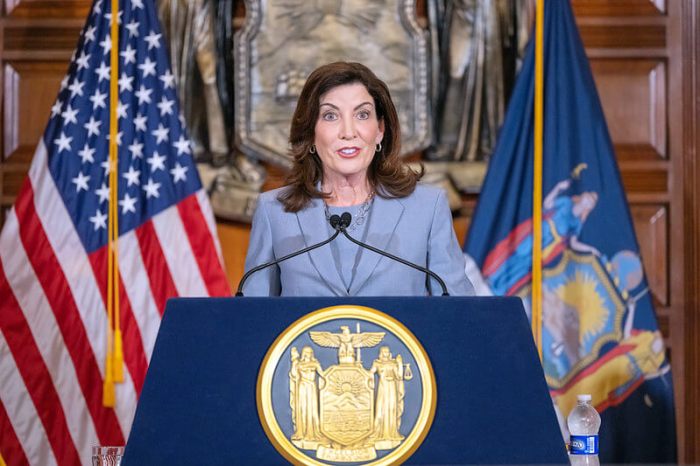Mayor Michael R. Bloomberg recently joined Health Commissioner Thomas Farley at the Sedgwick Pharmacy in the Bronx to get his flu shot, and urged all New Yorkers to get vaccinated before flu season officially begins in New York City.
Influenza is a highly contagious respiratory infection that, together with pneumonia, kills thousands of New Yorkers every year. Besides safeguarding people from days or weeks of sickness, the vaccine can prevent unnecessary school absences, doctor visits and hospitalizations. And unlike last year, there is no need to receive two different shots. This year’s vaccine also protects against 2009 H1N1.
“A thousand New Yorkers lose their lives every year to flu and related cases of pneumonia,” said Mayor Bloomberg. “Getting vaccinated is the single most important thing you can do to protect yourself from getting sick and spreading the flu to others. This year, there are thousands of locations throughout the five boroughs where New Yorkers can get vaccinated. Anyone who needs information about vaccination centers in their neighborhood should call 311.”
“The H1N1 virus that emerged last year is now considered one of the seasonal influenza viruses likely to circulate this fall and winter,” said Commissioner Farley. “The best way to protect yourself and loved ones is to get immunized. Influenza, together with flu-related pneumonia, is the third leading cause of death among New York City residents. Vaccination is quick and easy and can save lives. So don’t take the risk of severe illness, or even a week of misery. Get the vaccine today.”
“Unlike most vaccines, the flu shot must be given annually because influenza viruses change every year,” said Heath and Hospitals Corporation President Alan D. Aviles. “Taking a few minutes to get a flu shot will help protect you from coming down with this illness and spreading it to your family members, friends and co-workers. We urge all New Yorkers to take this preventive measure to help stay healthy.”
Getting vaccinated in New York City has never been easier. Any New Yorker 18 and over can get vaccinated at their local pharmacy. Many pharmacies accept health insurance, and flu shot costs range from $25 to $35 at most pharmacies for walk-in customers.
Flu vaccines are also available from Health Department clinics, and the Health and Hospitals Corporation (HHC) offers free or low-cost vaccination at all of its hospitals and community health centers. During October, HHC will also administer vaccines at health screening events in every borough. Anyone can find a nearby vaccine outlet by calling 311 or visiting nyc.gov, which features an interactive vaccine locator.
Influenza symptoms include fever, dry cough and body aches. Influenza is not just a bad cold. It is caused by a completely different virus and can be serious for those who are pregnant, have compromised immune systems, or have chronic conditions such as heart disease or diabetes. Annual flu vaccination is now recommended for everyone over 6 months old, but it’s especially important for people in these priority groups:
~Pregnant and post-partum women
~Children younger than 5 years, especially those under 2
~People 50 and older, especially those 65 and older
~People with certain chronic health conditions, including diabetes, lung disease (including asthma), heart disease, sickle cell anemia, weakened immune system (such as from HIV or cancer treatment), and any nerve or muscle disorder that can cause breathing problems
~People who live in nursing homes and other long-term-care facilities
~People who care for infants less than 6 months old
~Health care workers
It is also important to vaccinate school-aged children, not just because it protects them but also because it helps prevent them from spreading the infection to others at higher risk of severe illness. Healthy people between the ages of 2 and 49 can get the flu vaccine through a nasal mist instead of an injection. If you’re hesitant about getting a flu shot because of the needle, ask your doctor whether the nasal mist is an option for you.
It is too early to predict the severity of this year’s influenza season, but because thousands of locations in New York City have ample supply of vaccine, the City will not conduct weekend clinics. The City will continue to post weekly updates on the number of people seeking treatment for influenza-like illness at hospital emergency departments, and will provide educational materials for patients and health care providers.
To prevent the spread of flu and other infections:
~Cover your mouth and nose when you cough or sneeze. Using a tissue or the inside of your elbow is better than using your hand.
~Wash your hands often with soap and water, especially after you cough or sneeze. Or use an alcohol-based hand sanitizer.
~If you get sick, stay home for at least 24 hours after your fever resolves and avoid close contact with other people.

























